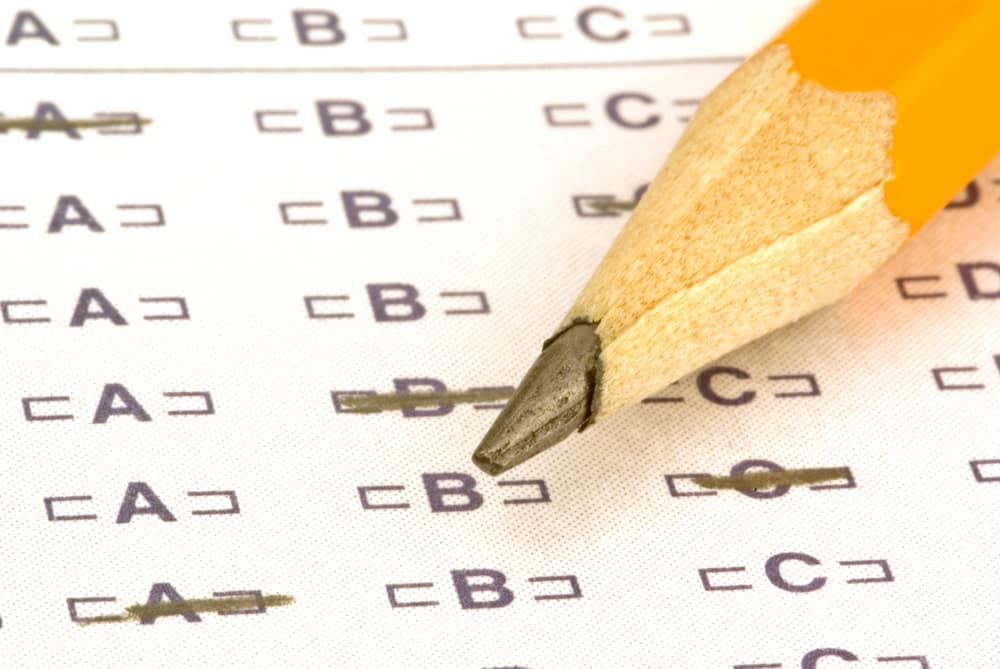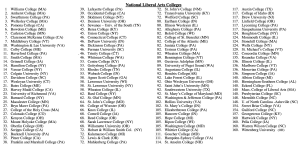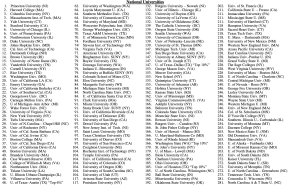
High school students are stressed about when they will be able to take the SAT and/or ACT test again, but there is some good news during the COVID-19 pandemic .
A steady stream of colleges and universities have been announcing that they will not require SAT or ACT test scores for the 2021-2022 school year and possibly beyond that admission cycle.
The University of California, with its nine undergrad campuses, is the biggest institution to drop the standardized test requirement. Most elite universities, including all the Ivy League institutions, are test-optional for at least the 2021-2022 school year.
What the test-optional trend means for students
There is more to this test-optional story than the sentiment, “Oh goodie, my child might have more college options now!”
In exploring what the test-optional environment might mean to families, I recently interviewed Andrew Belasco, the CEO of College Transitions, a college consulting firm based in Georgia, that advises families across the country. You can watch the interview below.
Belasco, who received his PhD at the University of Georgia’s Institute of Higher Education, has previously conducted peer-reviewed research into the test-optional phenomenon. His research, released in 2014, could indicate who will benefit from today’s embrace of test-optional policies.
You can read my 2014 post on Belasco’s research here:
Who is benefiting from test-optional admissions?
Colleges that are dumping the SAT and ACT
Since the spring, a stunning string of colleges and universities have announced they are becoming test optional for the next admission cycle. Some are saying this will be an experiment without committing to making it permanent, but I’d be shocked if most, if not, made the policy permanent.
More than 1,200 test-optional colleges exist
While the pandemic has prodded more schools to ditch their requirement for the controversial standardized tests, more than a 1,200 schools already had test-optional policies in place.
You can find the entire list of test-optional schools at Fairtest.org, which is a nonprofit that advocates against standardized tests and advises colleges on how to break their reliance on them.
Liberal arts colleges evaluate applicants holistically and can spend more time with each application. The absence of test scores won’t be as big a deal for an admission office at a liberal arts college as it would be at, say, state universities that are typically heavily dependent on test scores and grade point averages. The vast majority of liberal arts colleges are now test optional.
Here is a screenshot of Fairtest.org’s list of test-optional liberal arts colleges that was updated on July 25.

Research universities and test-optional policies
Highly selective universities have been slower to embrace test-optional policies, but the momentum has been strong since the pandemic.
Here is a screenshot from FairTest.org of many of the national universities that are test-optional:

Test-optional considerations
One factor when considering the test-optional route is money. At some institutions, applicants might not be eligible for merit scholarships if they don’t submit their test scores. Some institutions might reserve top awards to test submitters.
If students plan to sit on their scores, they need to be competitive with their GPA and other admission qualifications. A weak candidate who doesn’t submit scores will not enjoy an advantage any more than someone with the same GPA and ACT/SAT results.
When students aren’t sure whether to submit scores, the best strategy is to contact a school’s admissions representative.
When comparing your test scores with previous average scores at a test-optional college, keep in mind that these scores are probably inflated. That’s because almost all colleges only calculate the scores they receive. Obviously, the students who don’t turn in their test scores have lower scores that will bring down the college average.
Diversity and test-optional policies
Pre-pandemic, the most popular reason that college administrators cite for implementing test-optional policies is to attract a more diverse student body. Overall, how students do on the SAT and ACT is highly correlated with income.
So if an institution eliminates the testing requirement, minority and first-generation students should enjoy a better chance of getting into these more selective schools. Colleges and universities also embrace test-optional policies to help boost their recruiting efforts and make themselves look more selective.
A paper published in The Journal of College Admissions suggested colleges that switch to a test-optional policy see an immediate 10-20% hike in applications. Generating that spike in applications normally would cost up to hundreds of thousands of dollars in marketing.
Belasco’s research suggests that the diversity argument doesn’t necessarily hold up. Belasco looked at 180 liberal arts colleges that included 32 test-optional institutions. The test-optional colleges turned out to be no more diverse than those that required the standardized tests.
“Our findings suggest that test-optional admissions policies as a whole have done little to meet their manifest goals of expanding educational opportunity for low-income and minority students,” Belasco said.
“However, we find evidence that test-optional policies fulfill a latent function of increasing the perceived selectivity and status of these institutions. In doing so, these policies may serve to reproduce and maintain the current social structure.”
What’s going to happen?
I predict the pandemic will push more universities to follow the lead of these research institutions and the University of California. The UC system announced in May that it is going to explore creating its own test to replace the ACT and SAT, which could represent a significant challenge to the ACT/SAT.

What about if a student is doing test prep? It’s not cheap and would hate to spend the money and then colleges decide that students don’t have to take the tests.
I think that’s part of the reason colleges are dropping them. They favor wealthier students that can afford the test prep classes.
Any response from Collegeboard? This is a loss of big money for them unless they can make it up somewhere else..
Author
Hi Elizabeth, I’m not going to shed any tears for this organization that has made obscene amounts of money through the SAT, subject tests and AP tests. We’d all be fine without these tests.
Lynn O
AMEN!
The UCs were on the path of going test-optional before the China Virus. The pandemic just gave them the excuse. To me, the UCs value gpa and the amount of AP courses too heavily as it is, and going test optional will only facilitate the gpa arms race among California high schoolers.
The UCs are implementing this for the fall 2020 application for incoming freshman in Fall 2021 (class of 2025). From my non-professional point of view, the elimination of testing would generally put disadvantaged students at a more level playing field, eg they won’t be competing against students who can afford SAT/ACT tests and prep classes/private tutors. Students who face hardships and special family circumstances have the opportunity to tell their stories on their college applications.
I noticed that UC is applying this action to Fall 2020. Isn’t that a little late for 2020 ? I can see it for 2021 and on. So, sadly, don’t you think this would adversly affect students of disadvantaged backgrounds? A great student that works in high school has to sacrifice grades at times for money for family. What can UC use as a way to level the field now? And with grade inflation, won’t no scores help the privileged sturdent?
Haha, I wish I would have known that they’re doing this for 2020! It is definitely too late. I’m a high school senior I am interested in what you said about privilege; I wanted to add that I’m actually observing the opposite while going through the application process right now. At my school, rich, privileged kids can spend obscene amounts of money on SAT prep courses and test retakes, while underprivileged kids cannot. Also, (I haven’t fact checked this) but one of my teachers told me that studies have shown how you can pretty accurately predict the SAT score of a student based solely on race and family income. It will be interesting to see how this new system will be implemented, because there is no national guideline for how grades are awarded, so GPA is arbitrary and pretty much meaningless. It seems like schools are transitioning into accepting kids who have a passion in life, do lots of community service and preform well on AP tests. Also, from what I’ve heard from various admissions officers, it seems like schools are trying to incorporate race into the admission process, for example taking into account what struggles a student may have faced trying to receive an education. There is also a push to accept more 1st gen college students! In addition, most schools have numerous scholarships available to students who are underrepresented at their school. Of course, I don’t know if this is true everywhere. The schools I have heard this from are UW and USC (surprisingly). I hope what they’re doing will help!